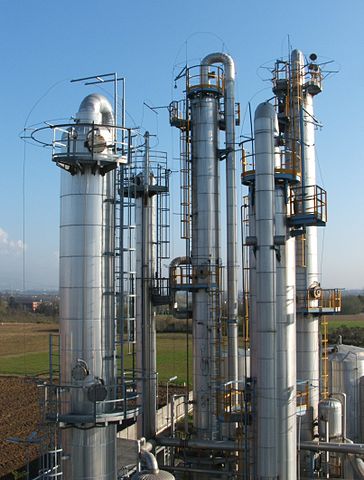The future of sustainable energy in chemical engineering is marked by a transition towards cleaner and more environmentally friendly energy sources. Chemical engineers play a crucial role in developing technologies and processes that contribute to the generation, storage, and utilization of sustainable energy. Here are key aspects of the future of sustainable energy in chemical engineering:
1. Renewable Energy Production:
- Solar Energy: Chemical engineers contribute to the development of advanced materials for photovoltaic cells, improving the efficiency and cost-effectiveness of solar energy conversion. This includes innovations in solar cell design, materials science, and manufacturing processes.

- Wind Energy: Chemical engineers work on materials and processes related to the manufacturing of wind turbine components. This involves optimizing the production of lightweight and durable materials for turbine blades and tower structures.
- Bioenergy: Chemical engineers play a role in the production of biofuels and biochemicals from renewable biomass sources. This includes the development of efficient conversion processes, such as fermentation and bio-refining, for the sustainable production of energy carriers.
2. Energy Storage:
- Battery Technologies: Chemical engineers contribute to the advancement of battery technologies for energy storage. This includes research on new electrode materials, electrolyte formulations, and design optimization to enhance the performance, safety, and longevity of batteries.
- Hydrogen Storage: Hydrogen is considered a promising energy carrier, and chemical engineers work on developing effective methods for hydrogen storage. This involves research into materials such as metal hydrides and carbon-based structures for storing and releasing hydrogen.
3. Carbon Capture and Utilization (CCU):
- Carbon Capture Technologies: Chemical engineers play a key role in developing technologies for capturing and sequestering carbon dioxide emissions from industrial processes and power plants. This includes advancements in solvent-based capture systems, solid sorbents, and membrane technologies.
- Carbon Utilization: Chemical engineers explore ways to convert captured carbon dioxide into valuable products through processes like carbon capture and utilization (CCU). This includes the production of chemicals, fuels, and building materials from CO2.
4. Electrochemical Processes:
- Electrolysis for Hydrogen Production: Chemical engineers work on improving the efficiency of electrolysis processes for the production of hydrogen from water. This includes advancements in electrocatalysts, membrane technologies, and system integration.
- Fuel Cells: Chemical engineers contribute to the development of fuel cells for converting chemical energy into electricity. This involves research on fuel cell materials, electrode design, and overall system optimization for various applications, including transportation and stationary power.
5. Smart Grids and Energy Management:
- Grid Integration: Chemical engineers contribute to the integration of renewable energy sources into smart grids. This involves developing control systems, energy management algorithms, and communication technologies to optimize the generation, distribution, and consumption of electricity.
- Demand-Side Management: Chemical engineers work on technologies for demand-side management, enabling more efficient use of energy resources. This includes the development of smart appliances, energy-efficient processes, and systems for demand response.
6. Advanced Materials for Energy Applications:
- Nanomaterials: Chemical engineers explore the use of nanomaterials in energy applications, including catalysts for fuel cells, advanced coatings for solar panels, and materials for energy storage devices.
- Advanced Polymers: Research in advanced polymers contributes to the development of lightweight and durable materials for various energy applications, such as wind turbine blades, photovoltaic encapsulation, and energy-efficient building materials.
7. Data Analytics and Optimization:
- Data-Driven Solutions: Chemical engineers leverage data analytics and optimization techniques to improve the efficiency and performance of energy systems. This includes real-time monitoring, predictive maintenance, and the application of machine learning algorithms for process optimization.
8. Process Intensification:
- Efficient Processes: Chemical engineers work on process intensification strategies to make energy production processes more efficient and environmentally sustainable. This involves optimizing reaction pathways, reducing waste, and improving overall process economics.
9. Life Cycle Assessment (LCA):
- Sustainability Assessment: Chemical engineers perform life cycle assessments to evaluate the environmental impact of energy production processes. This holistic approach considers the entire life cycle of a technology, from raw material extraction to end-of-life disposal.
The future of sustainable energy in chemical engineering involves continuous innovation, interdisciplinary collaboration, and a commitment to addressing the challenges of energy transition. Chemical engineers will play a central role in developing technologies that contribute to a more sustainable, resilient, and low-carbon energy future.












